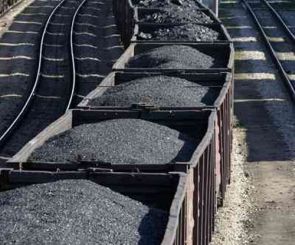 | « Back to article | Print this article |
Interestingly, the companies that fulfilled their part of the bargain and began mining the blocks might be seen as being penalised extra, given that they will have to pay a hefty penalty on their past production -- before December 31, in full.
 The Supreme Court’s decision on Wednesday to cancel all but four allocations of coal mines by the government, since 1993, has thrown several sectors into a state of acute policy uncertainty.
The Supreme Court’s decision on Wednesday to cancel all but four allocations of coal mines by the government, since 1993, has thrown several sectors into a state of acute policy uncertainty.
Exceptions were made for ultra-mega power plants, such as the one at Sasan, which the court observed were not under consideration, and for coal blocks attached to the power and steel companies controlled by the central government.
In fact, even state government-controlled power and mining companies, which were assigned coal blocks, will have to lose the allocations.
The repercussions of this decision should not be minimised.
First of all, it reminds all investors that India is a country fraught with political risk.
If a policy dating back to 1993 can be declared illegal, and all decisions based on that policy be negated, then investors will be very wary of any proactive investor-friendly policy decisions indeed.
This does put a bit of a crimp in the central government’s “Make in India” programme.
Sovereign risk of this nature is not normally associated with a liberal democratic country. Re-allocating the coal mines through auctions will not be easy. Recent auctions have not seen enough bidders.
Some companies may prefer to import, driving up their cost of operation and widening the country’s current-account deficit; others may simply go out of business, impacting loans to the sector.
Eventually, the taxpayers will pay again, if the stress of confiscation and re-allocation is borne by the public-sector banking system.
Interestingly, the companies that fulfilled their part of the bargain and began mining the blocks might be seen as being penalised extra, given that they will have to pay a hefty penalty on their past production -- before December 31, in full.
The decision takes India back to a pre-1991 situation, in which central-government monopolies were the sole backbone of the economy.
An already over-stressed and inefficient Coal India will now have to bear responsibility for all of India’s coal needs.
At best, the verdict can be seen as a reminder of the vast numbers of old laws that need overhaul.
Successive central governments have looked for reformist quick fixes within the existing legislation, so as to get growth going as quickly as possible.
This leaves decisions open to legal challenge -- and to being overturned a long, long time later.
A comprehensive alteration of the legal structure governing natural resources is clearly essential.
Some immediate changes can be made through ordinances.
Others should follow a quick study by a commission on the lines of the Financial Sector Legislative Reforms Commission.
The government should repeal outdated laws, such as the Coking Coal Mines (Nationalisation) Act of 1972, the law from the height of Indira Gandhi’s statist era that the Supreme Court has said was violated, and replace them with more modern, pro-market legislation.
This decision has precipitated a crisis, no question.
But, as the old cliche goes, it can also be an opportunity.
India has suffered under regressive laws for natural resources too long.
It is time to change the legal framework, and make pricing more transparent, and allow market players into the system.